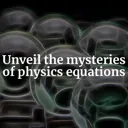Tags: Lorentz Invariance
![]() Lorentz invariance is at the core of any (special) relativistic theory. Sometimes, however, we encounter expressions that seem to transform in a wrong way. This is especially true for the four-potential calculated from the retarded four-current. Find out why the four-potential is indeed Lorentz invariant!
Lorentz invariance is at the core of any (special) relativistic theory. Sometimes, however, we encounter expressions that seem to transform in a wrong way. This is especially true for the four-potential calculated from the retarded four-current. Find out why the four-potential is indeed Lorentz invariant!
Problem Statement
The well-known retarded integrations over the charge density ρ(xν) and current density j(xν)\give rise to the scalar and vecor potential:
\[\begin{eqnarray*} \phi\left(x^{\nu}\right)&=&\frac{1}{4\pi\varepsilon_{0}} \int \frac{1}{\left|\mathbf{r}-\mathbf{r}^{\prime} \right|}\rho \left(\mathbf{r}^{\prime},t- \left|\mathbf{r}-\mathbf{r}^{\prime} \right|/c\right) dV^{\prime}\ \text{and}\\ \mathbf{A}\left(x^{\nu}\right)& = &\frac{\mu_{0}}{4\pi}\int \frac{1}{\left|\mathbf{r}- \mathbf{r}^{\prime}\right|} \mathbf{j}\left(\mathbf{r}^{\prime},t-\left|\mathbf{r} -\mathbf{r}^{\prime} \right|/c\right)dV^{\prime}\ . \end{eqnarray*}\]
At a first glance, these equations seem to be not Lorentz invariant. Show that the four-potential \(A^{\mu}\left(x^{\nu}\right)=\left(\phi\left(x^{\nu}\right)/c,\,\mathbf{A}\left(x^{\nu}\right)\right)\) obeys indeed Lorentz invariance:
Express Aµ in terms of the four-current jµ,
Re-forumlate the integral to go over space and time, \(dV^{\prime}\rightarrow dV^{\prime}dt^{\prime}\) using the δ-distribution,
\[\text{use}\quad \delta\left[f\left(x\right)\right] = \sum_{\text{roots }x_{i}} \frac{\delta\left(x-x_{i}\right)}{\left|f^{\prime} \left(x_{i}\right)\right|}\]
to find a forumulation of the integral without the \(1/\left|\mathbf{r}-\mathbf{r}^{\prime}\right|\).
Hints
Remember that we use SI units in which
\[j^{\mu}\left(x^{\nu}\right)=\left(c \rho\left(x^{\nu}\right),\mathbf{j} \left(x^{\nu}\right)\right)\]
For the last part of the problem: Think of the variables of the argument of the δ-distribution (a function!) such that the derivative of it is \(\propto \left|\mathbf{r}-\mathbf{r}^{\prime} \right|\).
Let us find the implications of the Lorentz invariance of the four-potential!
Four-Potential and Four-Current
Let us first write down how we calculate the four-potential for a given coordinate system
\[x^{\mu}=\left(ct,\mathbf{r}\right)\]
with respect to some charges and currents. In the necessary retarded formulation we have
\[A^{\mu}\left(x^{\nu}\right) = \left(\begin{array}{c}\phi\left(x^{\nu} \right)/c\\ \mathbf{A}\left(x^{\nu}\right)
\end{array}\right) = \frac{1}{4\pi} \int\frac{1}{ \left|\mathbf{r}- \mathbf{r}^{\prime}\right|} \left(\begin{array}{c} \rho \left(\mathbf{r}^{\prime},t- \left|\mathbf{r}-\mathbf{r}^{\prime}\right|/c\right)/ \varepsilon_{0}c\\ \mu_{0}\mathbf{j} \left(\mathbf{r}^{\prime}, t-\left|\mathbf{r}- \mathbf{r}^{\prime} \right|/c\right) \end{array}\right) dV^{\prime}\ .\]
Now we can remember that
\[j^{\mu} \left(x^{\nu}\right)=\left(c\rho\left(x^{\nu}\right), \mathbf{j} \left(x^{\nu}\right)\right)\]
and conclude:
\[A^{\mu}\left(x^{\nu}\right) = \frac{\mu_{0}}{4\pi}\int\frac{j^{\mu} \left(\mathbf{r}^{\prime},t- \left|\mathbf{r}- \mathbf{r}^{\prime} \right|/c\right)}{\left|\mathbf{r}-\mathbf{r}^{\prime} \right|} dV^{\prime}\ ,\]
since
\[\varepsilon_{0}\mu_{0} \equiv1/c^{2}\text{ and thus }1/ \varepsilon_{0}c=\mu_{0}c\]
This result is of course nice but we probably knew it already as solution to \(\Box A^{\mu}=j^{\mu}\).
Nevertheless, the integral does not seem to be Lorentz invariant at first sight. So, what can we do to show it?
Reformulation of the Integral
We can try to bring the integral into a form such that it's an integral with invariant quantities each, i.e. no retardation. Ok, we may simply write
\[A^{\mu}\left(x^{\nu}\right) = \frac{\mu_{0}}{4\pi}\int\frac{j^{\mu} \left(\mathbf{r}^{\prime}, t^{\prime}\right)}{\left|\mathbf{r}- \mathbf{r}^{\prime}\right|} \delta\left(c\left(t-t^{\prime}\right)- \left|\mathbf{r}- \mathbf{r}^{\prime}\right|\right) \theta\left(t-t^{\prime}\right) dV^{\prime}dt^{\prime}\]
and keep in mind that t > t' since we only care about the retarted interaction, not the advanced one. This fact is reflected with the Heaviside-theta and will be important later on.
Now we want to get rid of anything looking non-Lorentz-invariant. The only chance we have is try something with the δ-distribution - maybe we can get rid of the distance |r - r'|!
δ-Gymnastics and Lorentz-Invariance
Ok, let us use
\[\delta\left[f\left(x\right)\right] = \sum_{\text{roots }x_{i}}\frac{\delta\left(x-x_{i}\right)}{\left|f^{\prime}\left(x_{i}\right)\right|}\]
to re-formulate the expression inside the δ-distribution regarding it at a fixed spacial distance |r - r'| and with variable τ = c(t - t'):
\[\begin{eqnarray*} \delta \left[\left(x^{\nu}-x^{\nu\prime}\right)^{2}\right]& = &\delta\left[-\tau^{2}+\left|\mathbf{r}- \mathbf{r}^{\prime}\right|\right]\\& = &\delta\left[\left(-\tau+\left|\mathbf{r}-\mathbf{r}^{\prime}\right|\right)\left(\tau+\left|\mathbf{r} -\mathbf{r}^{\prime}\right|\right)\right]\\& = &\frac{1}{2\left|\mathbf{r}- \mathbf{r}^{\prime}\right|}\left[\delta\left(-\tau+\left|\mathbf{r}- \mathbf{r}^{\prime}\right|\right)+ \delta\left(\tau+\left|\mathbf{r}-\mathbf{r}^{\prime}\right|\right)\right]\ . \end{eqnarray*}\]
Then, we end up with
\[A^{\mu}\left(x^{\nu}\right) = \frac{\mu_{0}}{2\pi}\int j^{\mu}\left(x^{\nu\prime}\right)\delta \left(\left(x^{\nu}-x^{\nu\prime} \right)^{2}\right) \theta\left(t-t^{\prime}\right)dV^{\prime}dt^{\prime}\ .\]
Note that the decomposition of the δ-distribution resulted in two contributions- retarded, with "-τ" and advanced, with "+τ". Luckily, the θ-distribution fixes the issue. The result is astonishing since we end up with just an integration over the four-current which looks somehow unfamiliar.
The given integral is naturally invariant since any quantity involved is Lorentz-invariant: the integral measure, the current and
\[\left(x^{\nu}-x^{\nu\prime} \right)^{2}=\eta_{\mu\nu} x^{\mu}x^{\nu\prime}\]







